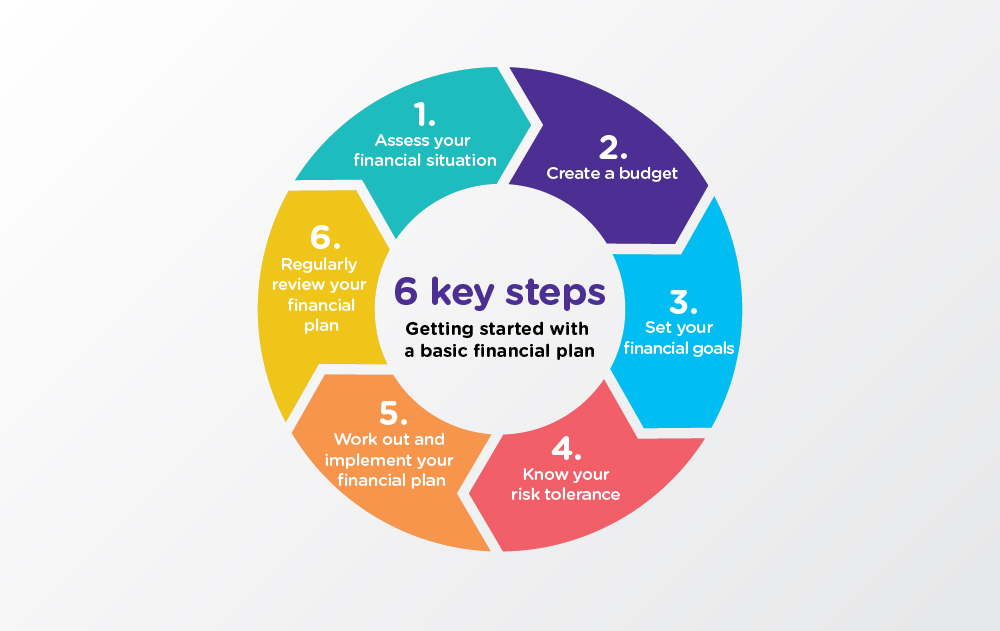Life has a good way of throwing financial curveballs when we’re least prepared for them. From expensive car repairs to being laid off unexpectedly, there are all sorts of life events that can happen that can quickly leave you in a financial bind. To ensure that you’re prepared for anything that may come your way, it’s good to know how to prepare for the unexpected.
Here’s what you need to know about creating a finance plan to help during those moments in life that no one ever thinks will happen to them.
Have an Emergency Fund
One of the best things you can do to prepare for the unexpected is to have an emergency fund. This fund should cover your living expenses for at least three months, though saving six months of expenses is even better. In the event that you lose your job, are injured, or for some reason are unable to make your normal income, you have money to fall back on.
While emergency funds are often used for worst case scenarios, they’re also helpful for those times when your car decides to stop running or the HVAC in your home has reached its end of life. In these situations, most people would have to drain their checking account or run up a credit card in order to cover the expenses.
With a well-stocked emergency fund, you have access to money that you can use in the event of any expensive situation. In turn, there’s much less of a financial impact.
Get Into the Habit of Saving
There’s nothing worse than having to cut costs because of an unexpected financial issue. Instead of waiting to save until you don’t have a choice, make saving something that you do on a regular basis. Be sure to set aside money from each paycheck into a savings account. This is separate from an emergency fund but should be for more long-term costs, like saving up for a car or purchasing your first home.
The earlier you save, the easier it becomes. Saving as soon as you start receiving a steady paycheck allows you to effortlessly put money aside. By saving $100 each paycheck (assuming a bi-weekly pay schedule), you could end up saving at least $2,600 in a year!
A savings account not only acts as a financial cushion but is beneficial for helping you achieve your financial goals.
Make Your Money Go Farther
You only make so much money each month, so wouldn’t it be nice to stretch every dollar to get the most out of your money? Knowing how to cut costs without impacting your standard of living is key to achieving financial security and planning for the unexpected. For example, if you’re like most people, you pay a provider for Internet, cable, and phone services. But did you know that by bundling these services, you can often be given a lower rate? Using the same provider for home services is an effective and nonintrusive way to save money without impacting your life.
Other ways to make your money go farther include:
- Cooking meals at home
- Enjoying free entertainment
- Driving less, walking more
- Consolidate loans
- Use coupons
The less you spend, the more money you have available to save or to use towards something you really want to purchase. You can also work on safely investing your money to help it grow as well.
Get Insurance Coverage
Though many find it to be a scam, insurance coverage can come in handy, especially during those unexpected life events when we need a little help. With the right insurance coverage, you’re able to offset a lot of costs.
Maybe you’re interested in weight-loss surgery like Contrave, but can’t afford the out-of-pocket Contrave price. Maybe your pet has gotten sick recently and the vet bills are piling up. By having health insurance or pet insurance in the event that you have a pet, you don’t have to worry about paying the full cost.
Other forms of insurance to consider include life insurance and car insurance. Life insurance is beneficial in the event that you die and leave debt behind. With this coverage, your family members aren’t burdened with your debt.
Car insurance is truly a no-brainer. If you own a car, having insurance covers you and other drivers on the road in the event of an accident. While you may never be in an accident, it’s better to have coverage and not need it than have an accident and not be covered.
Conclusion
Planning for the unexpected may seem silly on the surface, but you’ll be glad you took the time to save in the event of a life emergency. With these tips, you can have the peace of mind that you’re financially prepared for anything that life may throw your way.

 2018 ·
2018 ·
Leave a Reply